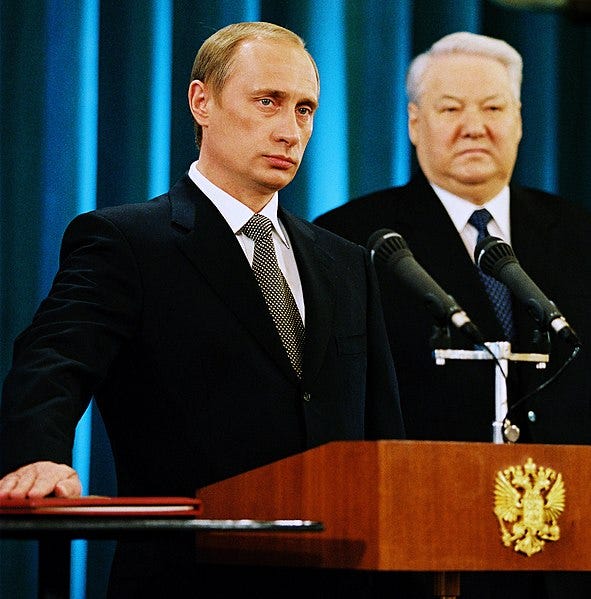A Warning from Russia About Biden
How people calculate frail vs. authoritarian

When I first visited Russia in 2003, I asked many people if they supported Vladimir Putin, who was then largely unknown in the West. Frequently, liberal, middle-class Russians would say things like: "Well, I think he is better than [Boris] Yeltsin." At that time, many of the political repressions that would happen under Putin's reign had not occurred yet.
Russian President Boris Yeltsin had gone from strength to weakness in his two terms. In 1991, as president of the Russian republic of the U.S.S.R., he appeared strong when he stood atop a Soviet tank to denounce the KGB coup attempt, which failed two days later. However, as his presidency went on, he had a series of heart attacks and often appeared intoxicated in public. As he became increasingly incapacitated, a clique known as "the family" governed until he anointed Putin as his successor on December 31, 1999.
Putin rode into office on a wave of goodwill. He projected strength and security. He brutally prosecuted the Second Chechen War and installed a pro-Moscow strongman to lead Chechnya; many Russians thought his rhetoric of killing Chechen militants in the "shithouse" was empowering.
I thought of this dynamic of weakness and strength in the aftermath of the CNN presidential debate between President Joe Biden and former President Donald Trump. During the debate, Biden, 81, did not look physically capable of serving out another term. While Trump spewed falsehoods, he came across as relatively contained, especially at the start of the debate.
A dynamic of fearing a physically weak leader more than an authoritarian leader may be playing out among swing voters.


